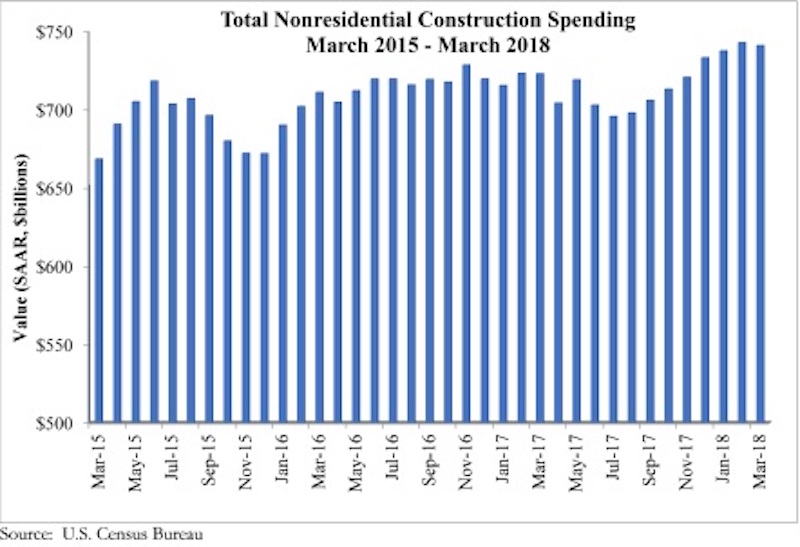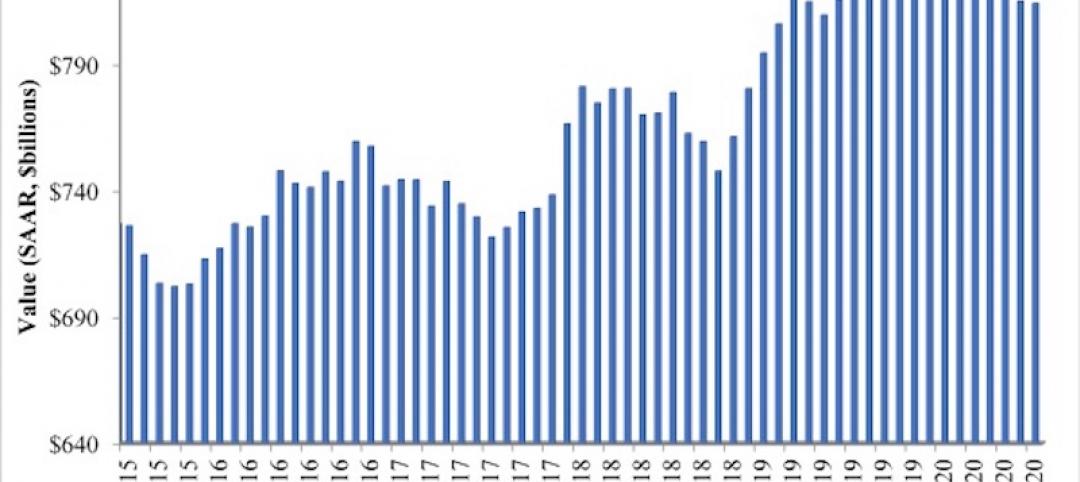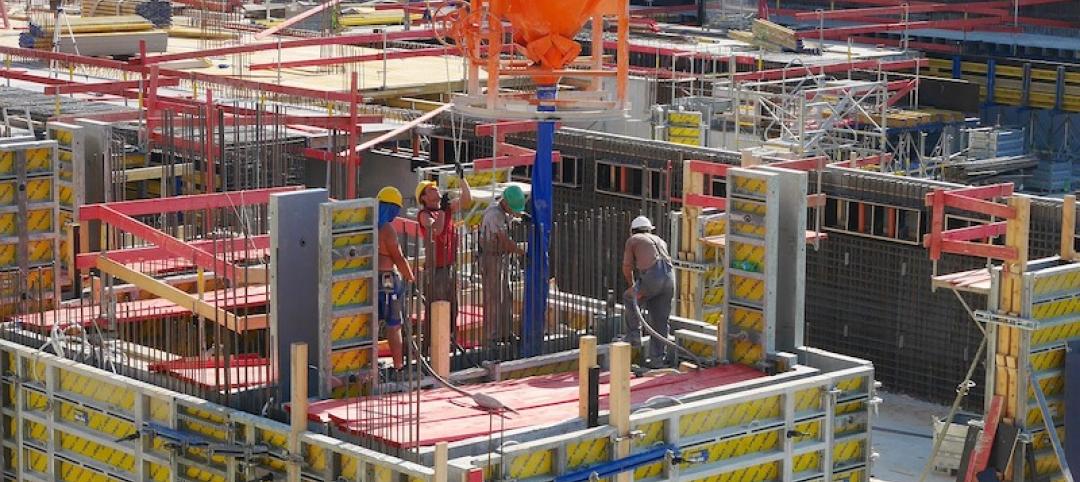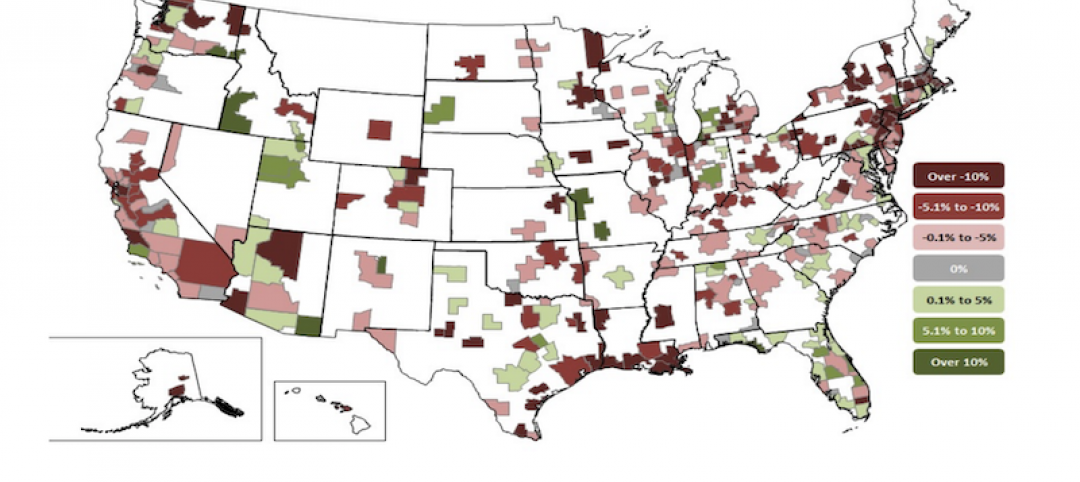Nonresidential construction spending declined 0.3% in March, according to an Associated Builders and Contractors (ABC) analysis of U.S. Census Bureau data recently released. Nonresidential spending, which totaled $740.9 billion on a seasonally adjusted, annualized basis, has expanded 2.5% on a year-over-year basis. February’s spending estimate was revised roughly $10 billion higher, from $732.8 billion to $742.8 billion, rendering the March decline less meaningful.
Private sector nonresidential construction spending fell 0.4% on a monthly basis, but rose 2.2% from a year ago. Public sector nonresidential spending remained unchanged in March, but it is up 2.9% year-over-year.
“The nonresidential construction spending data emerging from the Census Bureau continue to be a bit at odds with other data characterizing growth in the level of activity,” said ABC’s Chief Economist Anirban Basu. “For instance, first quarter GDP data indicated brisk expansion in nonresidential investment. Data from ABC’s Construction Backlog Indicator, the Architecture Billings Index and other leading industry indicators have also been suggesting ongoing growth. Despite that, private nonresidential construction spending is up by roughly the inflation rate, indicating that the volume of services delivered over the past year has not expanded in real terms.
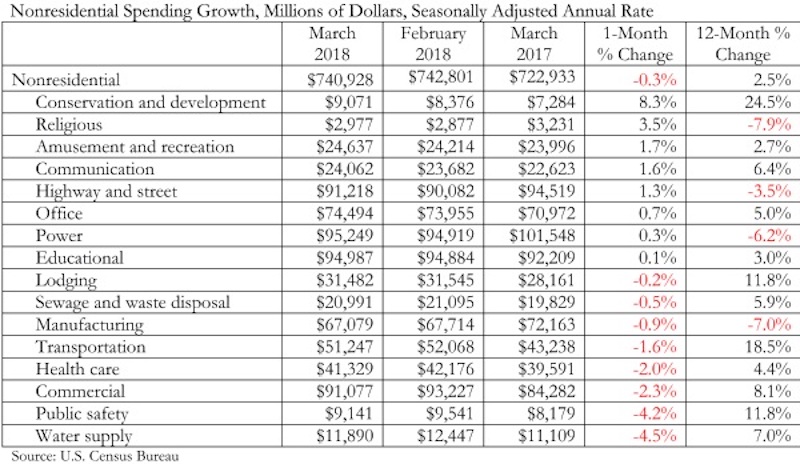
“That said, most economists who follow the industry presumed that March data would be somewhat soft,” said Basu. “The Northeast and Midwest were impacted by unusually persistent storm activity in March. The same phenomenon impacted March’s employment estimates, which indicated that construction actually lost 15,000 jobs that month. Other weather-sensitive industries, including retail trade, also experienced slow to negative job growth in March.
“The upshot is that CEOs and other construction leaders should remain upbeat regarding near-term prospects despite today’s construction spending report,” said Basu. “Leading indicators, including a host of confidence measures, collectively suggest that business investment will be on the rise during the months ahead. Improved state and local government finances should also support additional nonresidential construction activity.
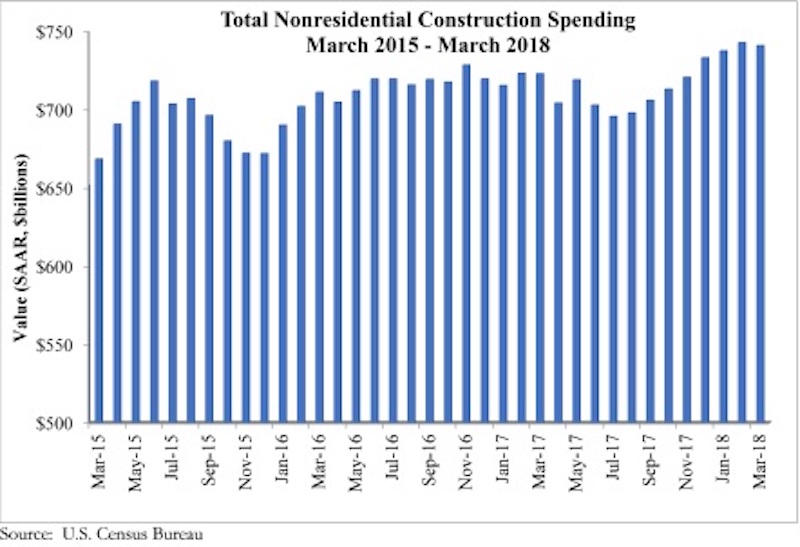
“At the same time, construction industry leaders must remain wary of a sea of emerging risks to the ongoing economic and construction industry expansions,” said Basu. “Interest rates are on the rise. Materials prices, including those associated with softwood lumber, steel and aluminum, are expanding briskly. Wage pressures continue to build. There are also issues related to America’s expanding national debt, increasingly volatile financial markets, geopolitical uncertainty that has helped to propel fuel prices higher, and lack of transparency regarding America’s infrastructure investment intentions. The challenge for construction CEOs and others, therefore, is to prepare for growing activity in the near-term, but for something potentially rather different two to three years from now.”
Related Stories
Market Data | Oct 5, 2020
Nonresidential construction spending falls slightly in August
Of the 16 nonresidential subcategories, nine were down on a monthly basis.
Market Data | Oct 5, 2020
Construction spending rises 1.4% in August as residential boom outweighs private nonresidential decline and flat public categories
Construction officials caution that demand for non-residential construction will continue to stagnate without new federal coronavirus recovery measures, including infrastructure and liability reform.
Market Data | Oct 5, 2020
7 must reads for the AEC industry today: October 5, 2020
Zaha Hadid unveils 2 Murray Road and the AEC industry is weathering COVID-19 better than most.
Market Data | Oct 2, 2020
AEC industry is weathering COVID-19 better than most
Nearly one-third of firms have had layoffs, more than 90% have experienced project delays.
Market Data | Oct 2, 2020
6 must reads for the AEC industry today: October 2, 2020
BIG imagines how to live on the moon and smart buildings stand on good data.
Market Data | Oct 1, 2020
Two-thirds of metros shed construction jobs from August 2019 to August 2020
Houston-The Woodlands-Sugar Land and Brockton-Bridgewater-Easton, Mass. have worst 12-month losses, while Indianapolis-Carmel-Anderson, Ind. and Niles-Benton Harbor, Mich. top job gainers.
Market Data | Oct 1, 2020
6 must reads for the AEC industry today: October 1, 2020
David Adjaye to receive 2021 Royal Gold Medal for Architecture and SOM reimagines the former Cook County Hospital.
Market Data | Sep 30, 2020
6 must reads for the AEC industry today: September 30, 2020
Heatherwick Studio designs The Cove for San Francisco and Washington, D.C.'s first modular apartment building.
Market Data | Sep 29, 2020
6 must reads for the AEC industry today: September 29, 2020
Renovation to Providence's downtown library is completed and Amazon to build 1,500 new last-mile warehouses.
Market Data | Sep 25, 2020
5 must reads for the AEC industry today: September 25, 2020
AIA releases latest 2030 Commitment results and news delivery robots could generate trillions for U.S. economy.


